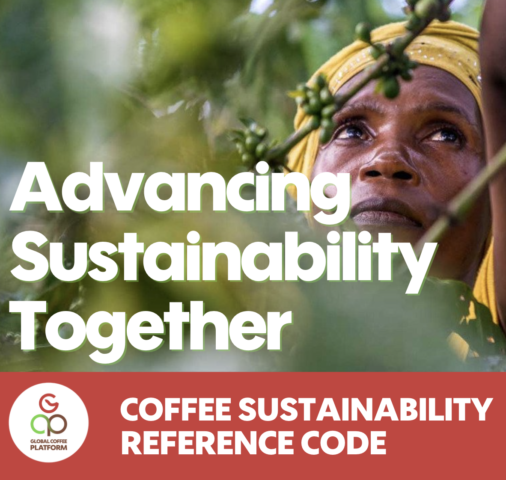
A critical enhancement process
A fundamental principle supporting GCP’s vision for a thriving, sustainable coffee sector is to continually increase the demand for and supply of coffee produced following baseline sustainability practices. This is why in 2016 GCP created the Equivalence Mechanism, building on the GCP Baseline Coffee Code, acting as a supportive foundational framework for various sustainable sourcing schemes that met baseline criteria for coffee sustainability then expressed by the GCP Baseline Coffee Code.
While recognizing and supporting the pioneer role that certification-like sustainability schemes have in advancing sustainable production and consumption, the version of the GCP Equivalence Mechanism (EM 1.2) issued in October 2020 is designed to accommodate a wider range of sustainability schemes, both private and public sector in a credible way.
The updated version is based on a year-long research process — compiling best practices and interviewing stakeholders on their sourcing schemes. A two-month beta testing phase with four private schemes refined the approach and provided the basis for this updated interim version of the Equivalence Mechanism.
For their recognition, GCP assessed the different sustainability schemes against the principles and criteria in the GCP Baseline Coffee Code and the operating practices that schemes should have in place to be considered credible and effective. Depending on their assurance model they are classified as GCP Baseline Coffee Code equivalent 2nd party or 3rd party.
What does it mean to be Equivalent 2nd or 3rd party?
For their recognition, GCP assessed the different sustainability schemes against the principles and criteria in the GCP Baseline Coffee Code and the operating practices that schemes should have in place to be considered credible and effective. Depending on their assurance model they are classified as GCP Baseline Coffee Code equivalent 2nd party or 3rd party. 2nd party assurance is often referred to as verification and 3rd party assurance is often referred to as certification. The main difference between these two levels of assurance is that 3rd party assurance includes the oversight of an external body in all assurance activities of the organization that owns the scheme, this includes but goes beyond third-party audits at farm level.
List of schemes recognized as GCP Baseline Coffee Code:
Equivalent 3rd party
4C, C.A.F.E Practices, Certifica Minas, Fairtrade and Rainforest/UTZ
Equivalent 2nd party:
ECOM’s SMS Verified, Enveritas ‘ Enveritas Gold and Enveritas Green, Guaxupé Planet by Exportadora de Café Guaxupé, LIFT by Mercon, Nespresso AAA, Neumann’s NKG BLOOM, and ofi’s AtSource Entry Verified and AtSource Plus.
Equivalence Mechanism Revision
Public consultation 16 March – 20 April
Building on the recent publication of the Coffee Sustainability Reference Code (previously known as Baseline Coffee Code) the Equivalence Mechanism will be updated to reflect the changes in the newly revised Code, as well as to consider system aspects (Operational Criteria) that reflect good practices and users’ expectations of credible schemes.
GCP invites its members and any interested stakeholders, including organizations and companies whose schemes have been recognized as equivalent to GCP or have interest in this process in the future, to provide input during the consultation phase.
Lend your voice!
Thank you for participating in the revision of the GCP Equivalence Mechanism. The survey is now closed.
The documents below will assist you in completing the survey, provide more information about the consultation and the revision process.
Explanatory video about the consultation
Proposed DRAFT Equivalence Mechanism 2022 v2.0
EM 2.0 Operational Criteria DRAFT (Excel)
Contact
For more information regarding the Equivalence Mechanism, please contact:

